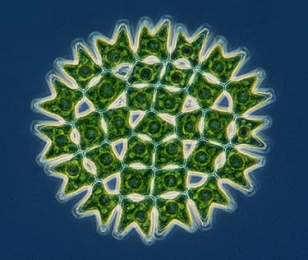Algae Cultivation: Worse Carbon Footprint Than Corn
Difficult water and nutrient issues confront algae biofuel farmers.
Jan 26, 2010 - greentech media
 Algae biofuel production "consumes more energy, has higher greenhouse gas emissions and uses more water than other biofuel sources, such as switchgrass, canola and corn," according to a University of Virginia study published in Environmental Science & Technology.
Algae biofuel production "consumes more energy, has higher greenhouse gas emissions and uses more water than other biofuel sources, such as switchgrass, canola and corn," according to a University of Virginia study published in Environmental Science & Technology.
Here's an extract from the abstract:
Algae are an attractive source of biomass energy since they do not compete with food crops and have higher energy yields per area than terrestrial crops. In spite of these advantages, algae cultivation has not yet been compared with conventional crops from a life cycle perspective. In this work, the impacts associated with algae production were determined using a stochastic life cycle model and compared with switchgrass, canola, and corn farming. The results indicate that these conventional crops have lower environmental impacts than algae in energy use, greenhouse gas emissions, and water regardless of cultivation location. Only in total land use and eutrophication potential do algae perform favorably.
Biofuels Digest makes the supporting data available for free here.
The findings of this study point out the inherent water and nutrient issues confronting algae biofuel farmers.
“The large environmental footprint of algae cultivation is driven predominantly by upstream impacts,” according to the paper, “such as the demand for CO2 and fertilizer. To reduce these impacts, flue gas and, to a greater extent, wastewater could be used to offset most of the environmental burdens associated with algae."
It would imply that companies relying on Photobioreactors (PBRs) and non-waste water feedstock are going to have the wrong carbon footprint. And there remain many challenges associated with the use of flue gas, as well.
But there are other schemes afoot to get fuel from algae that are less reliant on fresh water and added nutrients:
Some of Greentech Media's recent writing on algae-derived biofuels:



 Algae biofuel production "consumes more energy, has higher greenhouse gas emissions and uses more water than other biofuel sources, such as switchgrass, canola and corn," according to a University of Virginia study published in Environmental Science & Technology.
Algae biofuel production "consumes more energy, has higher greenhouse gas emissions and uses more water than other biofuel sources, such as switchgrass, canola and corn," according to a University of Virginia study published in Environmental Science & Technology.